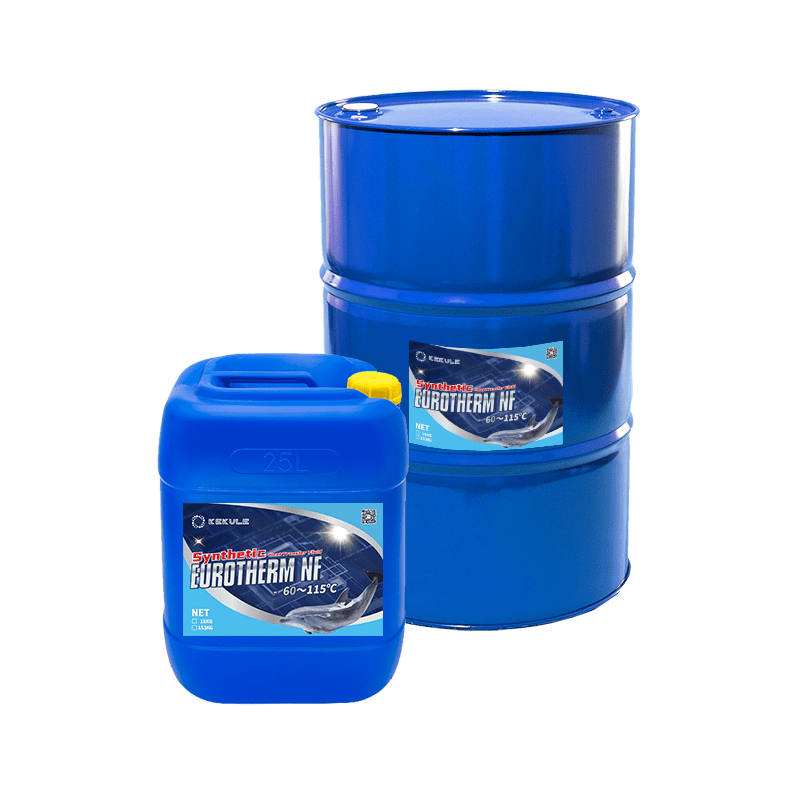Why Regular Upkeep of Heat Transfer Fluid is Important for System Durability
The Function of Warm Transfer Liquid in Enhancing System Performance and Safety And Security
In the ever-evolving landscape of commercial processes, heat transfer liquids (HTFs) emerge as critical parts in maximizing both system performance and safety and security. These specialized fluids, recognized for their exceptional thermal conductivity and regulated thickness, enable effective warmth exchange, which is vital for streamlined operations. Nonetheless, the influence of HTFs extends past mere efficiency; their inherent thermal security and reduced flammability substantially add to risk reduction. As markets come to grips with the demand for high-performance and safe operations, comprehending the nuanced role of HTFs becomes imperative. But what specifically makes HTFs so vital in today's industrial structures?
Recognizing Warm Transfer Liquids
Warmth transfer fluids, often taken into consideration the lifeline of thermal administration systems, play an essential function in controling temperature level across various industrial applications - heat transfer fluid. Industries such as chemical handling, power generation, and production count on warm transfer liquids to guarantee devices runs efficiently and securely.
The selection of a suitable heat transfer fluid is essential to the success of a thermal administration system. In recap, a detailed understanding of warmth transfer liquids is vital for enhancing system efficiency, ensuring operational security, and attaining cost-effective thermal monitoring services.
Secret Residence of HTFs

The certain warm capacity of an HTF marks the quantity of heat power needed to change its temperature, influencing how effectively the system can react to temperature level variations. The boiling and freezing points of HTFs additionally play an essential function, especially in systems revealed to extreme temperatures, making certain liquid security and stopping phase adjustments during operation. Furthermore, the chemical security of HTFs under differing thermal problems is essential to avoid destruction and expand fluid life. Last but not least, compatibility with system products is required to avoid rust and material deterioration, making certain lasting functional integrity. These residential properties jointly notify the selection of a suitable HTF for certain commercial applications.
Enhancing System Performance
To improve system efficiency with heat transfer liquids (HTFs), it is important to incorporate a detailed approach that thinks about both liquid residential properties and system layout. The selection of a proper HTF is crucial, as its thermal conductivity, viscosity, and certain warm capacity directly influence the efficiency of warmth exchange. High thermal conductivity makes certain fast warmth transfer, while optimal thickness promotes smooth flow via the system, lessening energy intake. Furthermore, a high details warmth capacity enables the liquid to shop and move even more thermal power, enhancing overall system performance.
Just as crucial is the layout of the warmth transfer system itself. The surface area and material of heat exchangers must be enhanced to make best use of warm transfer effectiveness.
Boosting Operational Safety And Security
Making sure functional security in warm transfer systems needs a careful concentrate on both the residential properties of warmth transfer fluids (HTFs) and the layout and upkeep of the entire system. HTFs need to possess thermal stability, low flammability, and ideal viscosity to reduce threats such as leakages, fires, and system malfunctions. Choosing the ideal HTF is vital as it determines the system's capacity to take care of temperature level fluctuations without endangering safety and security.
The layout of the system must include redundancies and fail-safes to handle potential hazards successfully. This consists of the integration of safety shutoffs, pressure alleviation gadgets, and temperature surveillance systems to identify and deal with anomalies promptly. Routine upkeep is imperative to make certain that all elements, consisting of pumps, pipelines, and seals, are functioning correctly and are totally free from wear or rust, which might bring about hazardous leakages or failings.
In addition, employees in charge of the procedure and upkeep of warm transfer systems need to be properly learnt safety and security methods and emergency situation response procedures. Consistent training programs and security drills can significantly reduce the probability of accidents, guaranteeing visit this web-site a much safer working setting. Eventually, an extensive strategy to security-- including fluid choice, system layout, and labor force training-- is important for ideal functional safety and security.
Industry Applications of HTFs
Widely utilized across different industries, warmth transfer liquids (HTFs) play an see this website essential role in improving the efficiency and integrity of thermal administration systems. In the chemical market, HTFs are essential for maintaining precise temperatures during reactions, guaranteeing product consistency and quality. They assist in warmth exchange procedures in reactors, condensers, and warm exchangers, consequently maximizing power usage and reducing waste.
In the oil and gas sector, HTFs are employed in both upstream and downstream procedures. They take care of temperature level in boring operations and enhance performance in refining procedures by offering steady thermal conditions. This results in minimized downtime and boosted security, especially in vital procedures such as purification and splitting.
The eco-friendly energy market additionally benefits substantially from HTFs, particularly in concentrated solar energy (CSP) plants. Right here, HTFs transfer captured solar power to power turbines, enabling efficient electricity generation. The pharmaceutical market counts on HTFs for accurate temperature level control in both synthesis and storage space, guaranteeing product efficiency and safety and security.


Additionally, the food and drink field makes use of HTFs for pasteurization, sanitation, and food preparation procedures, improving both item safety and security and production performance. Across these industries, HTFs function as crucial parts in maintaining optimum operational performance and safety.
Verdict
Warm transfer liquids are vital in enhancing industrial system efficiency and safety and security by using high thermal conductivity, ideal thickness, and thermal stability. Proper choice and maintenance of HTFs enhance warm exchange effectiveness, thereby improving functional performance. The reduced flammability of these liquids is vital for minimizing risks and ensuring secure operations. Comprehensive employees training and routine upkeep better sustain navigate to these guys the reliability and efficiency of commercial processes, strengthening the crucial role of HTFs in diverse applications.